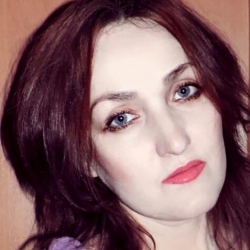Traditions, Holidays, Festivals
1. Прочитайте текст и закончите предложения после него. Обведите букву (a, b, c), соответствующую выбранному вами варианту ответа.
There are a lot of holidays and festivals around the world. As for British children their most favourite holidays are: New Year’s Eve, Easter, Guy Fawkes’ Night. New Year’s Eve is on the 31st of December. In Britain people often go to parties. At midnight, they hold hands and sing the Scottish song called “Auld Lang Syne” . Then they usually go into the street and wish their family, friends and neighbours a “Happy New Year”. Some people let off Fireworks to celebrate.
Another holiday that the British love a lot is Easter. It is always in spring, usually in April. There are three important days at Easter. The name of the first day is Good Friday. On this day, many people don’t eat meat, only fish. The second important day is Easter Sunday. Some people go to church and children get chocolate Easter eggs. Usually families get together and have a big meal of roast meat on this day. The third important day – Easter Monday, is a public holiday when schools and companies do not work. Some people send Easter cards. The shops are full of chocolate eggs. Many Easter decorations are yellow and we can see pictures of baby rabbits, lambs, chicks and daffodils.
Another holiday the British love a lot is Guy Fawkes’ Night, or Bonfire Night which is always on the 5th of November. The traditional celebration was the following. Children made a large figure of a man with old clothes and then put newspapers inside. This was a guy. They sat outside shops with the guy and collected money to buy fireworks. They said ‘Penny for the guy’. Then they went to a field or park and made a big fire called a bonfire. They put the guy on the fire. In the evening families often ate baked potatoes or sausages and had a party.
At night they went to watch the fireworks display. Many people didn’t like Bonfire Night because they thought it was not safe. Sometimes children burnt themselves on the fireworks.
On New Year’s Eve British people ___________.
play games b) go outside c) eat chocolate eggs
The first important day of Easter celebrations is _______.
Monday b) Friday c) Sunday
On Easter Sunday British children get ______________.
chocolate eggs b) postcards c) baby rabbits
On Easter Monday British people __________.
decorate their houses
wear yellow clothes
don’t go to school and work
Children don’t use this to make a guy _________ .
old clothes b) newspapers c) fireworks
Some people think Bonfire Night is _________ .
dangerous b) boring c) important
2. Вставьте в предложения предлоги at, in или on.
1. They decided to meet ____ noon.
2. We don’t have any holidays ____ October.
3. ____ Wednesday morning John Greenleaf arrived in London.
4. ____ the New Year’s Day we always visit my parents.
5. People see the New Year in ____ midnight.
6. ____ Easter people give each other colourful eggs.
7. Julian was born ____ 2014.
3. Соедините слова, чтобы получились словосочетания. Переведите полученные словосочетания на русский язык.
1. to wish a. a room to wish success – желать успеха
2. to strike b. a picture _________________________
3. to send c. gifts _________________________
4. to celebrate d. success _________________________
5. to decorate e. the party _________________________
6. to enjoy f. midnight _________________________
7. to hang g. a holiday _________________________
8. to prepare h. a card _________________________

















